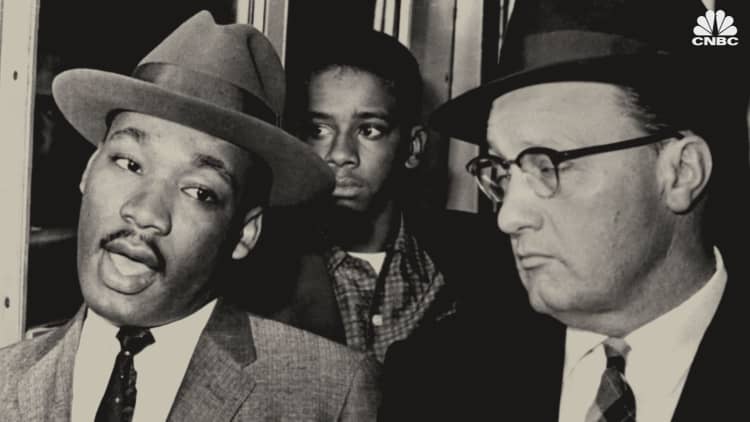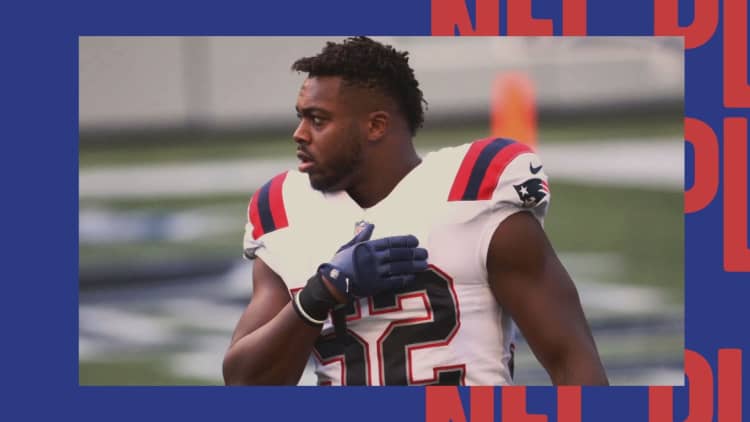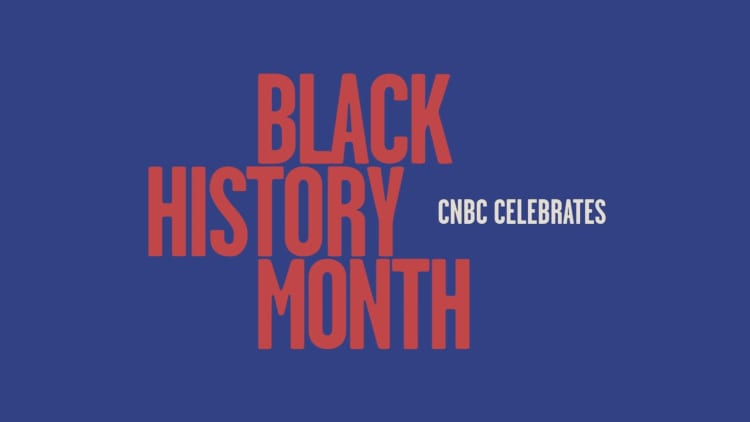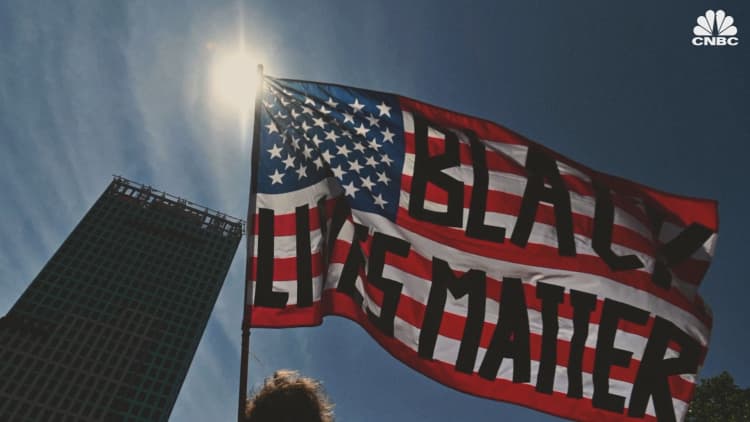As the nation celebrates the achievements of African-Americans during Black History Month, it is also a time to look ahead.
Black leaders have some advice for the next generation of African-Americans about how to bridge the racial wealth and income gap in the U.S., which has only been exacerbated by the coronavirus pandemic.
That gap is glaring.
The median wealth for a white family was $188,200 in 2019, compared to $24,100 for Black families and $36,100 for Hispanic families, according to the Federal Reserve's 2019 Survey of Consumer Finances, released in September 2020.
Black Americans can expect to earn up to $1 million less than white Americans over their lifetime, a 2019 study by McKinsey & Co. found.
To that end, CNBC contributors and members of the CNBC Financial Wellness Council reveal the lessons they have learned, their recommendations to the Black youth of America and the work they are doing to make a difference.
Akbar Gbajabiamila, 'American Ninja Warrior'

Advancing financial literacy can help close the racial wealth gap, said "American Ninja Warrior" co-host and former NFL star Akbar Gbajabiamila.
"It gives you the power and the position to take action," he said.
Gbajabiamila is calling on people to push for financial education as part of the curriculum, starting in middle school.
Only six states require a personal finance course for high schoolers, according to California-based nonprofit NextGen Finance's report on the 2019-20 school year. In states without such a mandate, 1 in 7 students in schools with 50% or more pupils receiving free or reduced lunches are required to take a personal finance course. In schools with a population of 50% or more Black and Brown students, only 1 in 22 is required to take such a class.
Gbajabiamila also believes access to financial advisors shouldn't just be for the wealthy.
"That's how you truly minimize the financial gap in this country," Gbajabiamila said.
"The access to this information, it just isn't there."
Helima Croft, managing director, RBC Capital Markets

A familiar face on CNBC, Helima Croft believes she is the beneficiary of the sacrifices that people made before her time.
"I really feel that my obligation is to sort of pay it forward, to always try to mentor the next generation, to try to open doors," she said.
Croft wants the next generation of Black leaders to think about the shoulders they are standing on now.
She believes that today's leaders can draw on inspiration from prior generations. "I think about everyone who participated in the Montgomery bus boycotts and what they went through."
Croft, who worked for the CIA after the 9/11 terror attacks, says one of most important lessons she learned was that no condition is permanent.
"If you've suffered a setback, the most important thing you can do is keep your eyes on the prize, pick yourself up off the floor, get back on that horse, and keep driving for the outcome you want."
Brandon Copeland, NFL player

For New England Patriots linebacker Brandon Copeland, becoming financially secure is more than just saving money. It's also about learning to invest properly.
"While we've been trained to put our money in a bank account, others have been trained to invest their money and allow it to grow over time," said Copeland, who also teaches a personal finance class at the University of Pennsylvania and has a nonprofit organization, Beyond the Basics.
To that end, he's teaching his family the importance of investing.
"In 2021, I'm thinking about 'How do I create generational wealth for my family?'" Copeland said. "Instead of buying them toys, I'm buying the ownership of a company.
"I'm buying them stocks."
His advice to the next generation of Black Americans: Be proactive.
"Take ownership of your financial education, so that you can change not only your life, but your family's life for the better," Copeland said.
Tiffany McGhee, founder, CEO & CIO, Pivotal Advisors

Tiffany McGhee launched her first business by cashing out her 401(k). McGhee knew it would be risky to leave the comfort and benefits of a corporate job for an entrepreneurial pursuit but, from a young age, she'd been taught the value of taking risks by her father.
Today McGhee, now founder, CEO & CIO of Pivotal Advisors, is the first African-American woman, and Afro-Latina, to have an institutional investment advisory firm. "I just knew I was gonna be a successful because I didn't have a choice."
When she was growing up, her father owned two retail stores, which gave McGhee insights into how to run her own business one day. "There was this whole ecosystem of business that I learned from my dad," she said. "And it helped me in business."
McGhee hopes that the next generation of Black Americans has the courage to start a business.
"Ownership is how you create lasting wealth," she said. "So if you've been thinking about starting a business, know you have everything you need inside of you to get started."
Dewardric McNeal, managing director & senior policy analyst, Longview Global

Dewardric McNeal wants the next generation of Black Americans to use their power to push Washington to pass policies that improve their economic health.
"The same sort of power that we saw this summer with the protests for George Floyd," he said. "They've done a great job on social justice but I would like to see them push Washington on the economic justice piece."
McNeal says there isn't a racial wealth gap but a racial wealth gulf.
"It'll take more than financial literacy to close that gap," he said.
One way of solving the racial wealth gap, according to McNeal, is to increase the access to capital for Black and Brown communities.
Unfortunately, many ideas never come to fruition because of a lack of access.
"Access to capital, greater opportunity for employment, other opportunities to participate in equity economy, all these things are needed to close this gap," he said.
In celebration of Black History Month, CNBC Invest in You will have weekly stories from CNBC contributors and members of the Financial Wellness Council, including the lessons they've learned growing up, their advice to Black youth, their inspirations, and how they are working to close the racial wealth gap.
SIGN UP: Money 101 is an 8-week learning course to financial freedom, delivered weekly to your inbox.
Disclosure: NBCUniversal and Comcast Ventures are investors in Acorns.







